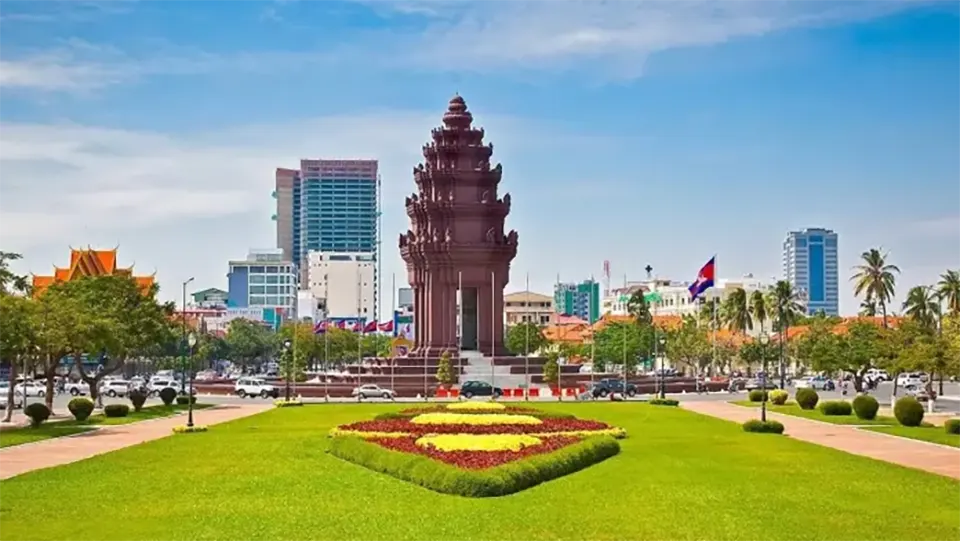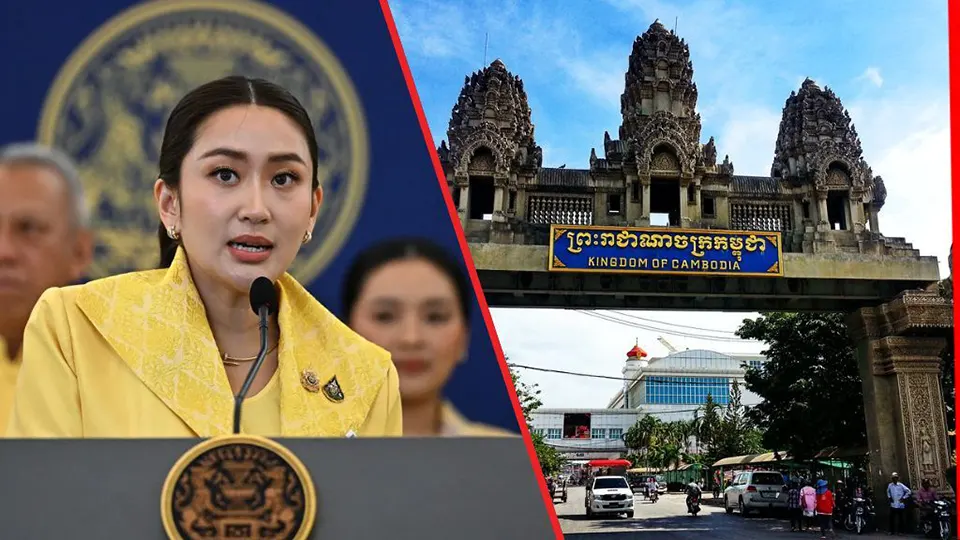The Thailand Cambodia casino crackdown has reached new levels of intensity in 2025 as both nations ramp up efforts to tackle illegal gambling operations and cross-border scams. With high-stakes political and security implications, authorities are not only shutting down unlicensed casinos but also tightening border security, launching raids, and cutting essential services like electricity and internet in targeted areas. This sweeping enforcement campaign marks a turning point in Southeast Asia’s battle against underground gambling and organized crime.
The surge in illicit casino activity along the Thailand-Cambodia border has raised red flags among regional leaders, prompting joint action amid broader concerns about national security, economic stability, and social harm caused by unregulated gambling. The evolving developments reflect the increasing urgency with which both countries are addressing this multifaceted issue.
A Longstanding Problem Comes to a Head
apacaff | For decades, Thailand and Cambodia have taken vastly different stances on gambling. Thailand, with its deeply conservative approach, bans almost all forms of gambling except for government-controlled lotteries and limited betting on horse races. Yet, illegal gambling dens continue to flourish behind closed doors.
Cambodia, in contrast, has permitted casino operations for years—especially in border areas like Poipet and Bavet. These casinos mostly cater to foreign visitors, especially Thais and Vietnamese, as locals are legally barred from gambling. However, the legal ambiguity and lax enforcement in some areas have given rise to illicit casino operations, cyber fraud hubs, and even human trafficking rings.
The Thailand Cambodia casino crackdown reflects a new era of cooperation, triggered by both domestic political pressure and regional geopolitical shifts. Public outcry, coupled with diplomatic efforts, has forced leaders in both countries to act swiftly and decisively.
Recent Crackdowns: A Region-Wide Sweep

Thailand’s Operation Casino Closure
Earlier this month, Thailand’s Ministry of Interior launched a major nationwide campaign known as “Operation Casino Closure”, targeting unauthorized gambling establishments. Within just one week, authorities raided and shut down more than 50 illegal casinos, mostly concentrated in urban areas and along the border.
These crackdowns came after months of surveillance and intelligence-gathering by local and national enforcement agencies. Officials have emphasized that these raids are just the beginning, and further action is expected as more criminal networks are exposed.
Thailand’s Interior Minister stated:
“Illegal casinos threaten not only the economy but also national security. We are committed to dismantling these operations and restoring order.”
Cambodia’s Tougher Stance
In response to mounting criticism and international scrutiny, Cambodia is also escalating enforcement. Prime Minister Hun Sen issued a direct order to local officials demanding immediate action against unauthorized gambling sites. He stressed the need for greater transparency and public accountability, signaling a shift from previous leniency.
Hun Sen stated during a recent speech:
“We must ensure that our laws are respected. Illegal gambling not only undermines our economic integrity but also fuels other criminal activities. This must stop.”
Cambodian police have since raided multiple border casinos, shutting down operations linked to scam syndicates, cybercrime, and labor exploitation. Law enforcement officers have also increased patrols near vulnerable zones.
Strategic Border Security Measures
Beyond the individual raids, the Thailand Cambodia casino crackdown also includes strategic moves to disrupt infrastructure supporting illegal casinos.
Electricity and Internet Cut-Offs
In a bold and unprecedented step, Thai authorities have begun cutting off electricity and internet services to suspected gambling and scam centers along the border. This move, spearheaded by Thailand’s Border Threat Prevention Command Center (BPCC), aims to paralyze operations without requiring immediate troop engagement.
The BPCC also plans to recommend further measures to the National Security Council, such as:
- Tightening surveillance on cross-border goods transportation
- Blocking communication lines used by fraud syndicates
- Restricting access to suspected hubs of cybercrime and trafficking
These aggressive tactics show a heightened level of coordination and determination to cripple illegal networks at the root.
Diplomatic Engagement: The Role of the Joint Boundary Commission
Amid the crackdowns, diplomatic engagement between Thailand and Cambodia is also ramping up, especially with the upcoming Joint Boundary Commission (JBC) meeting, scheduled for June 14 in Phnom Penh. This will be the first JBC session in over a decade.
Officials on both sides hope the meeting will stabilize tensions along disputed border areas, where illegal casinos often thrive in gray zones beyond immediate state control. Recent military inspections near the Choam Bok checkpoint have led to mutual de-escalation efforts, including troop withdrawals and trench coverings.
Thailand’s Foreign Ministry spokesperson, Nikorndej Balankura, emphasized:
“The recent troop adjustments and inspections were a result of goodwill and trust-building. We hope these talks lead to greater cooperation, not only on border issues but also on regional crime prevention.”
The JBC aims to resolve long-standing territorial disputes and enhance bilateral infrastructure collaboration, such as new crossings like the Ban Phak Kad checkpoint in Chanthaburi and extensions of the Thailand-Cambodia Friendship Bridge.
Visa Restrictions and Public Messaging
In a coordinated move to reduce border traffic and discourage illicit tourism tied to gambling, both countries have reduced their visa-free entry periods from 60 days to just 7 days for each other’s citizens. Thai authorities have made it clear that this restriction will remain in place until significant progress is made on the enforcement front.
Meanwhile, the Thai Foreign Ministry has called on citizens to remain calm, especially in border communities where military presence has increased. Nikorndej urged the public and media:
“Please refrain from sharing unverified information. Inflammatory or false reports can damage trust and cooperation.”
Regional Implications: Setting a Precedent

The Thailand Cambodia casino crackdown has far-reaching implications for other Southeast Asian nations, many of which are grappling with similar issues. Experts believe this coordinated enforcement could trigger a domino effect, prompting regional governments to reconsider their own gambling laws and enforcement strategies.
Possible Outcomes:
- Stronger Regional Frameworks: ASEAN may explore cross-border enforcement agreements or regional anti-fraud task forces.
- Public Education Campaigns: Governments could launch efforts to educate citizens about the dangers of illegal gambling and promote responsible play.
- Policy Reform: With shifting public sentiment, some countries may update gambling laws to better address online betting, crypto-based casinos, and offshore platforms.
Dr. Chaiya Srisong, an expert in Southeast Asian gambling policy, commented:
“Crackdowns alone won’t solve the problem. We need policy reforms that recognize the modern dynamics of gambling—especially the rise of online platforms. Legalization with strict oversight might be a safer long-term solution.”
Challenges Ahead
Despite recent successes, several obstacles remain:
- Corruption: In both Thailand and Cambodia, corruption within local enforcement remains a concern. Without internal accountability, illegal casinos can quickly return.
- Border Complexity: With porous borders and difficult terrain, completely sealing off illegal gambling routes remains a logistical challenge.
- Demand Pressure: As long as there is demand for gambling—especially from foreign visitors—illicit markets will seek ways to re-emerge.
Nonetheless, the current momentum is promising. The Thailand Cambodia casino crackdown is a strong signal to both criminal syndicates and the international community that both countries are serious about cleaning up the industry.
A Defining Moment for Southeast Asia
The ongoing Thailand Cambodia casino crackdown is more than just a law enforcement action—it’s a watershed moment for the region’s gambling regulation landscape. It reflects a deep commitment to reining in illegal operations, restoring public trust, and improving regional security.
As the JBC meeting approaches and joint operations expand, the world will be watching to see how this cross-border crackdown unfolds—and whether it sets a new standard for anti-gambling efforts across Southeast Asia.
Whether through diplomacy, enforcement, or policy reform, the direction is clear: illegal gambling has no future in Southeast Asia.












